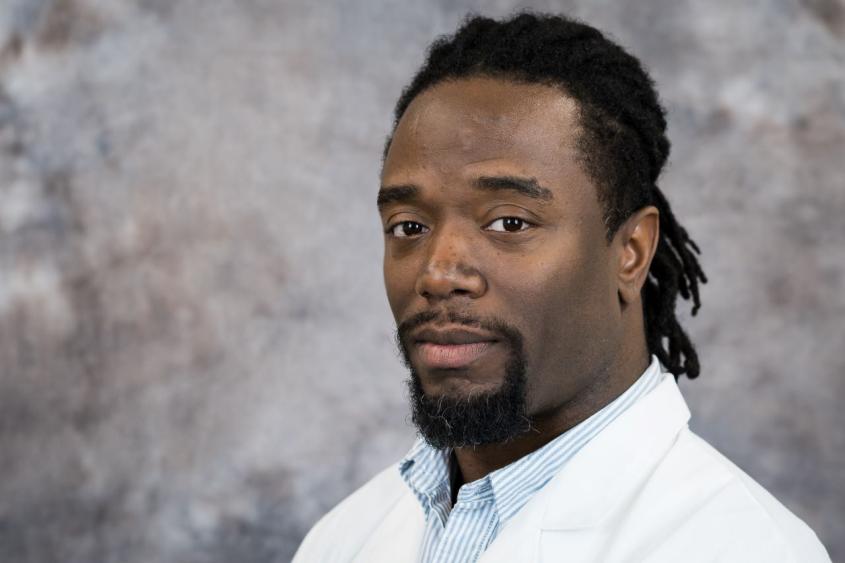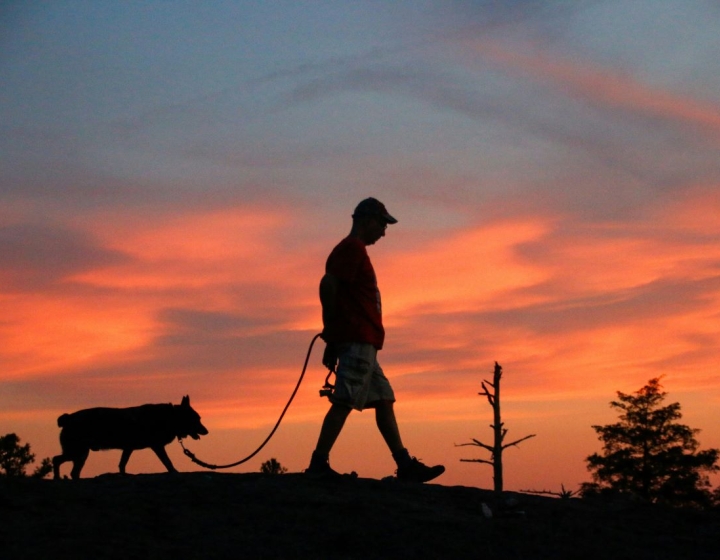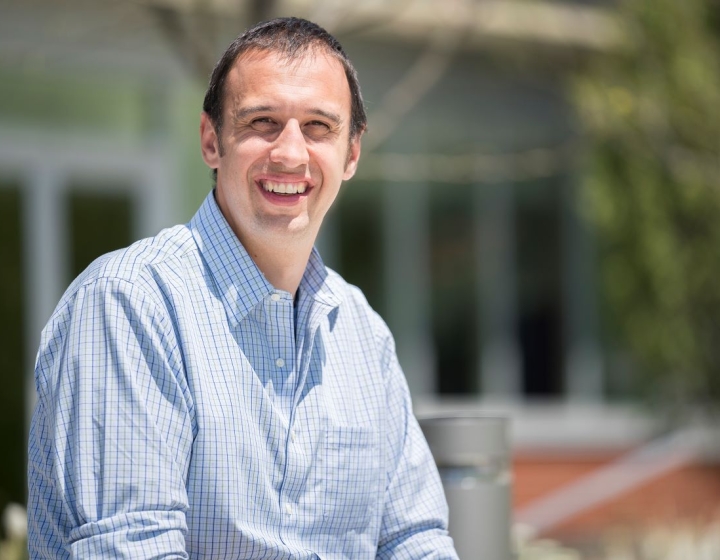New faculty profile: Dr. Glenn E. Simmons, Jr.
The Cornell University College of Veterinary Medicine (CVM) has recently welcomed many new faculty members to our academic departments, each one bringing a unique set of skills and experience that enriches our college every day. In this Q&A series, you'll get to know their interests, expertise and more.
Dr. Glenn E. Simmons Jr., assistant professor, Department of Biomedical Sciences
Q: What has been your path leading up to Cornell?
I received my undergraduate degree in Biology from the University of South Florida (USF). While there, I was a research assistant in a tumor vaccine laboratory at the Moffitt Cancer Center. It was my lab supervisor who suggested I consider graduate school. I searched for graduate programs based on the available mentors at various schools and eventually decided to attend Meharry Medical College, a historically black medical college in Tennessee. I trained in virology and immunology as a student, but I decided to return to cancer research upon graduation. My first postdoctoral fellowship was in cancer epigenetics at Louisiana State University Health in Shreveport. I later performed an additional fellowship in lipid metabolism at University of Texas Southwestern in Dallas. While training, I became interested in teaching, so I took a non-tenured position at the University of Minnesota Medical School, where I taught immunology and started my laboratory. As my research began to show progress, I looked for places where my research could continue to grow.
Q: What drew you to CVM?
The main thing that drew me to Cornell was the collaborative spirit of the faculty here. I was astonished at how welcoming everyone, from the senior faculty to graduate students, was during my visits. It felt like a place where real community could be fostered for scientists from all walks of life.
Q: What is your area of expertise?
I am a cancer biologist focusing on lipid metabolism and immunology.
Q:What drew you into this area? Any specific experiences, mentors, or influences that helped guide you?
As an undergraduate, I became fascinated by immunology, working on cell-based tumor vaccines with Dr. Scott Antonia at Moffitt Cancer Center. I joined his lab on recommendation from my long-time mentor, Dr. Bernard Batson, who is the reason I began research in the first place. I later became interested in lipids while studying sterol regulation of HIV transcription in the lab of Dr. James Hildreth. All my research mentors and advisors helped me fall in love with science, including the highs and the lows. One very influential piece of advice I remember today is, “you are going to fail; just make sure you fail forward.”
Q: What about your professional work are you most proud of and why?
I am most proud of my work to help communities outside of science. During the pandemic, my lab and others worked with cities across Minnesota to find a novel way to measure the prevalence of COVID-19. We created a predictive tool that allowed a two-week predictive window to spikes in COVID-19 cases. It was impressive to see how fundamental molecular biology tools could be applied to real world problems on such a massive scale. The program we created is still running and is entering its fourth year of activity.
Q: What impacts or applications do you hope to see your work have on the world?
I want my work to provide ways of improving health that do not explicitly require access to world-class medical centers. Unfortunately, most cancer patients do not benefit from immunotherapies. I hope we can develop novel treatments and methods to increase the number of cancer patients who respond favorably to currently available immunotherapies.
Q: What’s something most people don’t know about you?
I am an anime enthusiast. I have been reading manga and watching anime since junior high school. I even got my kids into old favorites like Yu Yu Hakuso, One Punch Man, and Yakitate!!! Japan.
Q: What’s the best part of your professional work?
The best part of my professional work is the mentoring. I enjoy helping others by sharing my experiences and knowledge. Throughout my career, I have found that at every step, it was effective mentorship that gave me the insight to move forward. As a faculty member, solid mentorship and sponsorship are the closest to having a superpower.
Q: What’s the most challenging part?
Managing my mental health is the most challenging. From dealing with imposter syndrome to sheer burnout, there are a lot of potential landmines. Early in my academic career, I treated research like a 100-meter race, but in reality, it is more like an 800-meter race, short enough to run fast but long enough to require pacing yourself. Over the years, I had to learn to seek help and slow down to focus on essential things like health and family. Keeping my physical health and family in a good place generally centers me. There is an old proverb, “If you want to go fast, go alone; if you want to go far, go together.”
Q: What are the benefits of working at CVM? At Cornell?
Being at CVM brings together a fantastic collection of clinicians and scientists to work on some of the most challenging problems in science and medicine. Every research question you can imagine can be answered with the expertise here at Cornell. One of the most attractive benefits of being at Cornell is the access to the amazing undergraduate and graduate students who provide vital energy at Cornell. The students were a major selling point to my decision to come to Cornell.
I look forward to training as many students as possible while at CVM!






